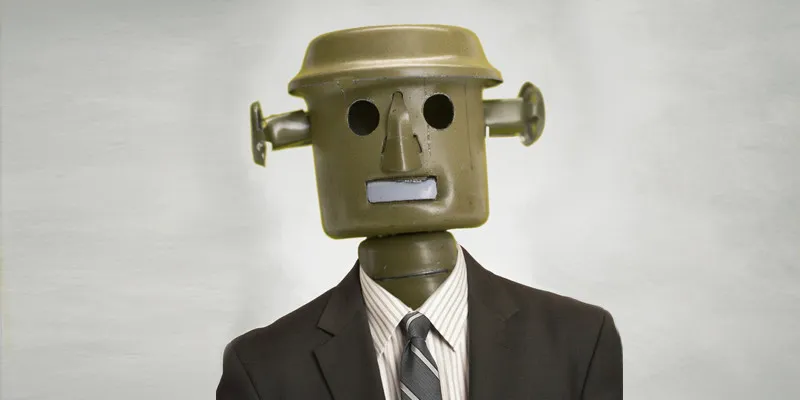What if your boss is a robot?
Bridgewater, the world’s biggest hedge fund with $160 billion, is now stepping beyond using algorithms to do financial trades. It is now trying to ask the existential question, “Why do we need managers?”
Elsewhere in the world, billionaires are dreaming up ways to build space ships, make humans live forever, and make cars fly. So, if Ray Dalio, the Founder of Bridgewater, aims to take a pot-shot at the relatively new art and science of managing people, why should we worry?
How is the algorithm being built?
What kind of jobs does a manager do that the software will take over? Ray is building the software in the vision of his 123-page public manifesto called The Principles. He says:
“Bridgewater’s success has resulted from talented people operating by the principles set out here, and it will continue if these or other talented people continue to operate by them. Like getting fit, virtually anyone can do it if they are willing to do what it takes.”

He suggests a five-step process to get what you want out of life.
- Have clear goals.
- Identify and don’t tolerate the problems that stand in the way of achieving your goals.
- Accurately diagnose these problems.
- Design plans that explicitly lay out tasks that will get you around your problems and on to your goals.
- Implement these plans, that is, do these tasks.
An app, dubbed The Contract, gets staff to set goals they want to achieve and then tracks how effectively they follow through.
A team of coders in busy building PriOS, a software that wants to make three-quarters of all management decisions within five years. To build the logic underlying the software, vast amounts of data are being constantly collected. Meetings are recorded and people are encouraged to challenge each other constantly. People grade each other and that shows up in individuals getting a report card of their strengths and weaknesses. The machine will match people with job openings.
Beyond logic
Ray believes that if only human emotions would be left out of the workplace, it would make it possible to run the place most efficiently. He is investing the brute power of his financial empire to make this dream a reality. People would be rated based on a million data points. The decision would be a foregone conclusion. But because people have difficulty (at least for now) to take orders from a machine, the role of the manager would be to simply convey the decision the machine has taken. How meaningful would that be for employees?
The role of a manager is part science and part art. While the algorithm will take care of the science part of the manager’s tasks, there is so much more to that role. The role of the manager is also to persuade the team members to go above and beyond. Two managers can convey the same performance rating to the same employee and have very different outcomes. One manager can leave the employee devastated with the rating while the other manager can leave the employee motivated to excel.
When we reflect on the cause of pain, we make progress says Ray in his manifesto. This maybe a time for us to reflect on the future.
(Disclaimer: The views and opinions expressed in this article are those of the author and do not necessarily reflect the views of YourStory.)







